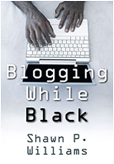Black Liberation Theology – What is it?
By Wilton Hollins
The phrase Black Liberation Theology is being tossed around in the media very recklessly by the likes of the Glenn Becks, Bill O’Reillys, and Shawn Hannitys of the airwaves. Very little time is spent on adequately defining just what it is and how it applies to the black church experience.
I must admit that until about a month ago I was not that familiar with the phrase Black Liberation Theology, and I consider myself to be intimately involved in the black church. I am very familiar with the style of preaching that takes place in most black churches, but was unaware that it has a label…but does this label really fit, and does it truly apply to the black Christian tradition as broadly as it is being used.
Black Liberation Theology was first coined by James Cone during the black power movement in the sixties. Cone who taught theology and religion at Philander Smith College and Adrian College and also the author of Black Liberation Theology argued that the “white church” had failed black Christians by not supporting their struggle for equal rights and thus should not be followed. He was heavily influenced by Malcolm X, the Black Power movement and Martin Luther King, Jr. whom he describes as a liberation theologian avant la lettre (James Cone and Black Liberation Theology, Cone pp. 13-16.)
It is Professor Cone’s assertion that theology for African Americans should be aligned with the struggle of the race, reflecting the black experience in general. He goes on to state that “in a world in which values are defined by white domination and white supremacy, in that kind of a world, God sides with those who are the victims in it.”
Dwight Hopkins, a Professor of Theology at the University of Chicago Divinity School who specializes in black religious studies says that America is waking up to Black Liberation Theology. I will say America was forced into waking up to this brand of theology by Jeremiah Wright, the former pastor of presidential candidate Barack Obama. Wright’s comments range from AIDS being targeted towards the minority community by the U.S. government to calling the country the U.S. of K.K.K.A.
Hopkins says Americans are suddenly discovering a church that has been invisible since the arrival of the first blacks to America in the 1700s. “It’s been thought of in the public realm as place for good music, a place you can draw on for a political demonstration or people to walk the picket line if the clergy people endorse the cause. But a systematic appreciation of the black church has never been done.”
Conservative talk show hosts such as Glenn Beck of CNN Headline News and Bill O’Reilly of Fox News purposely have lead their audience to focus on the definition of Liberation Theology which is different from Black Liberation Theology. Liberation Theology was a movement that started in the 1950’s when Marxism was influencing the poor in South America emphasizing the redistribution of wealth. That movement accelerated by Roman Catholic roots, was to combat colonial imperialism versus the poor peasants.
Beck and O’Reilly are attempting to frighten the uninformed segment of their audience into thinking that Black Liberation Theology, Jeremiah Wright and Barack Obama are conspiring to overturn the constitution and to overthrow the U.S. Government. Their motives for wanting Americans to think this way could possibly range from wanting weaken the Obama voting block to…wanting weaken the Obama voting block. They’ve gone from blowing off Obama as a viable candidate in the beginning of the primary season to attempting to paint him as a Marxist in order to derail his candidacy. Anytime you hear Bill O’Reilly praising Hillary Clinton, you should be suspicious of his motives.
Simply put, Black Liberation Theology is a way of tying the struggles of African Americans in this society to the teachings of a Jesus who gives both hope for a brighter future and liberation from your present condition.




